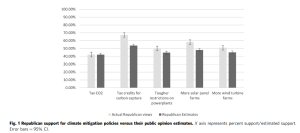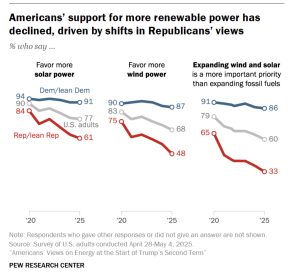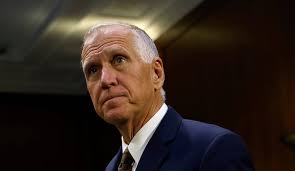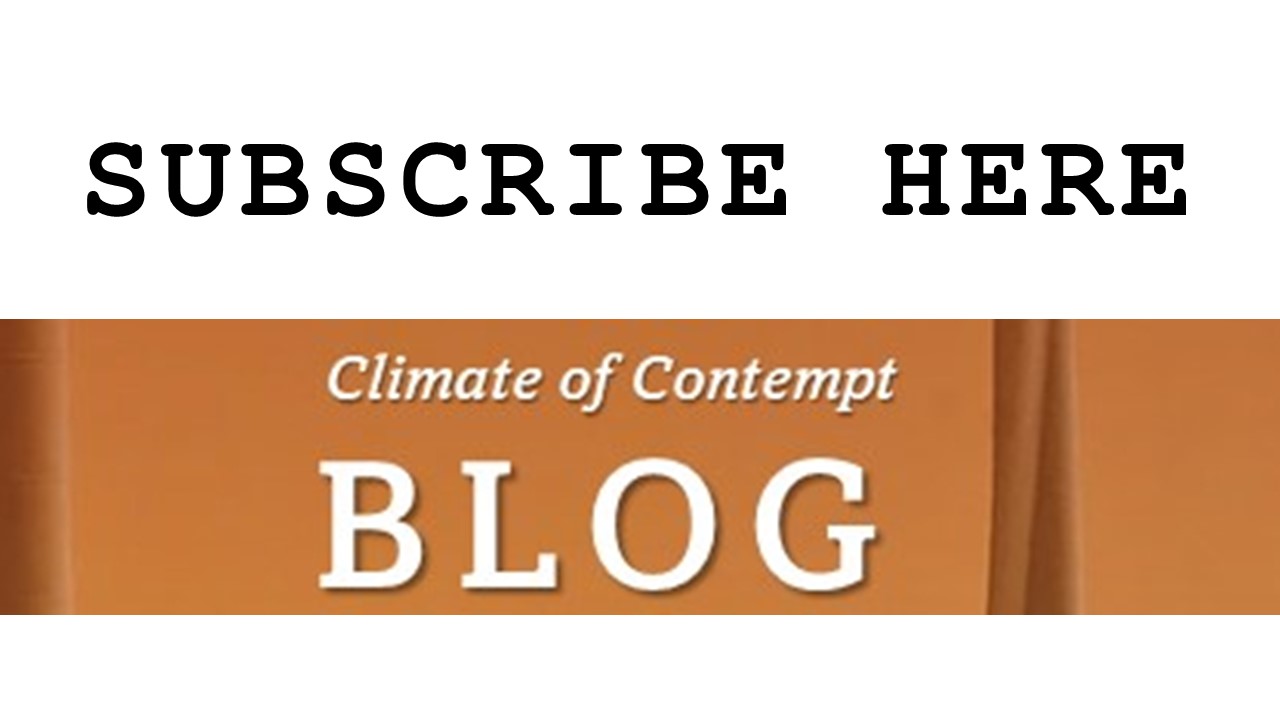Many writers and pundits (me included) have noted that the One Big Beautiful Bill (OBBB) Act will make electricity more expensive (by shifting project development costs from taxpayers to ratepayers) and slow growth in energy supply, just as future demand for electricity is projected to skyrocket. Why would Congress do that? The short answer is that those who voted for the OBBB were focused on partisan signaling, not energy policy.
I have periodically heard my friend Michael Webber lament the partisan politicization of energy choices — i.e., that we now have “Democrat electricity” (wind and solar power) and “Republican electricity” (fossil-fueled power plants), Democrat automobiles (non-Tesla EVs) and Republican automobiles (pickup trucks and Teslas), Democrat light bulbs (LEDs) and Republican light bulbs (incandescents), Democrat home heating systems (heat pumps) and Republican home heating systems (fossil-fueled boilers) … etc.
Of course, most people use energy instrumentally, in order to do other things like stay warm or run devices and appliances. Twenty years ago energy choices had a less partisan tinge, the vast majority of Americans would have preferred energy that is cheap and clean over energy that is cheap and dirty. Now, partisan tribalism wrapped these choices into partisan identity. Sadly, this hyper-partisan environment is turning Republican voters against clean energy.
GOP leaders have lined up behind Donald Trump’s anti-renewables agenda. When Donald Trump extols the virtues of “beautiful, clean coal,“ it helps Republicans rationalize away their concerns about that deadliest form of electricity generation. Sen. Thom Tillis (R-NC) has been a supporter of clean energy development in his state, and last month voted against the OBBB. But in today’s GOP that defection is apostasy, and so Tillis announced his retirement rather than face a primary challenge in the next election.
Something similar is happening to Democrats. When blue state politicians embrace a rapid transition to net zero carbon energy, it helps Democrats rationalize away the worry that the transition will jeopardize energy reliability or leave the economically vulnerable behind. But those tradeoffs don’t go away just because we stop worrying about them.
In recent months, Politico’s Energywire news service has reported on the ways in which partisan politicization of energy choices is straining the institutions that manage the electric grid. As blue states and red states become increasingly horrified by the other party’s energy policy agenda, they pull governance institutions in opposite directions.
Pacific Corp., a major western electric utility operating in six states, may be forced to split into two companies because of partisan politics. One company would operate in the three blue states within the Pacific Corp. footprint (Washington, Oregon and California), and would seek to comply with laws and political pressure to reduce carbon emissions there. The other company would operate in the three red states (Utah, Wyoming and Idaho), and would continue to rely on fossil-fueled power plants. Pacificorp’s six-state footprint has benefited consumers in so far as it facilitates interregional transfers of power during times of need. But the three red states want to avoid rate increases they believe are caused by policies enacted in the three blue states. Utah, is trying to force the split.
Something similar is happening in PJM, the entity that manages the country’s largest regional wholesale electricity market. PJM’s inability to expeditiously process interconnection requests by new power plants, coupled with anticipated increases in electricity demand, have caused prices on the PJM capacity market to spike. That market uses an auction to compensate power plants to be available in the future as reserves. Apparently, the bidders in that auction believe that future power is going to be scarce, which is why prices have gotten so high.
High prices are upsetting politicians in states within the PJM footprint. Blue state governors are threatening to pull their utilities out of the PJM market unless PJM starts rapidly approving projects in the interconnection queue, most of which are solar projects. Meanwhile, the Federal Energy Regulatory Commission is pushing PJM and other grid operators to move fossil-fueled power plants to the top of the interconnection queue. Again, partisan forces are making it more difficult for grid managers to make wholesale markets work consistent with the public policy goals of the states in their footprints.
And as always, the increasing division is driven by the outsized influence exerted by hyper-partisan voters, whose pressure drives politicians to extremes. That, in turn, leads voters to overestimate the distribution of ideological extremism in the rest of the electorate. Social scientists call this phenomenon “pluralistic ignorance.”
Consider, for example, Republicans’ perception of support for environmental and clean energy initiatives within their own party. A group of researchers asked Republicans how they felt about an array of such initiatives, and how they thought Republicans in general felt about them. As the chart below indicates, Republicans consistently underestimated their co-partisans support for these ideas.
Unfortunately, this misperception will erode some GOP voters’ support for renewable energy — moving them toward the (perceived) party position — in order to relieve cognitive dissonance. And GOP politicians, in turn, will see attacking renewable energy as good politics. It is a cycle.
This is yet another way in which the over-representation of the most shrill and extreme voices mask the common ground, and push us farther apart on energy matters. Indeed, a June 2025 Pew Research poll shows that GOP support for inexpensive renewable energy continues to decline, as GOP politicians continue to throw up obstacles to renewable energy.
To be clear, a majority of voters still favor policies to push the energy transition forward. But unless pro-climate Republican voters begin to withhold their votes from anti-climate Republican candidates, anti-climate voters will continue to control the climate policy positions of the GOP. Donald Trump’s executive order this week directing the Treasury Dept. to wind down tax credits for renewables is unpopular, but popular with the voters who control the fate of GOP politicians. Meanwhile, utilities, automakers, and every other sub-sector of the energy industry will be caught in the middle, between increasingly demanding stakeholder/partisans whose whose demands of them cannot be reconciled. – David Spence
—————–





